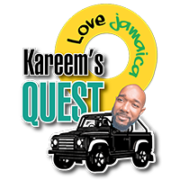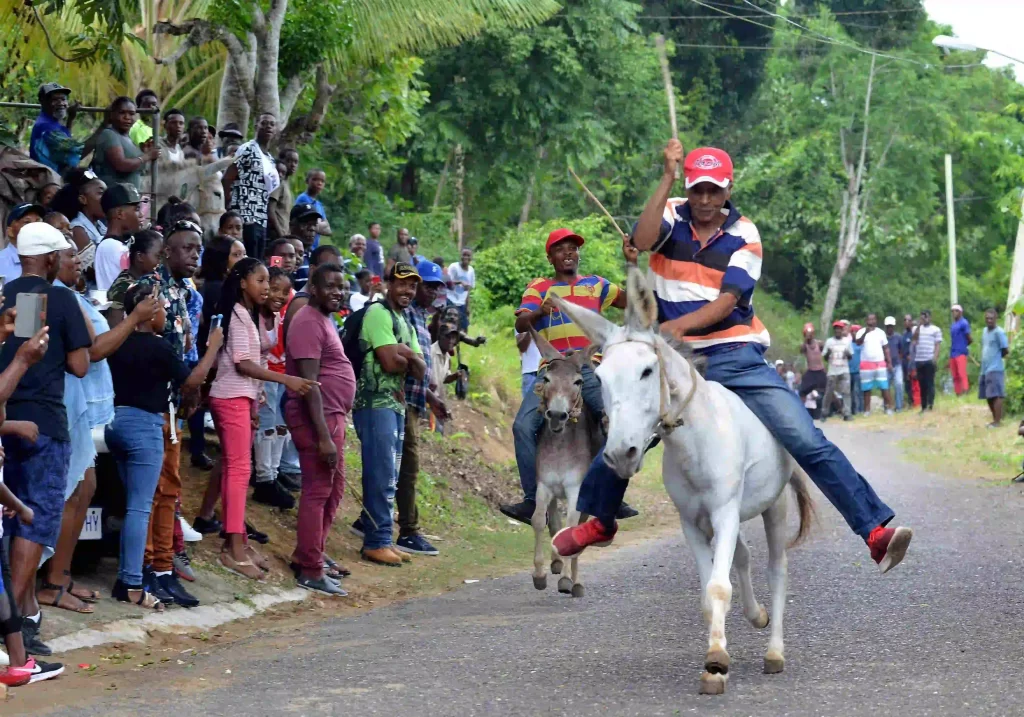Donkey racing is not a sport that you would normally associate with Jamaica, the land of reggae, jerk chicken, and Usain Bolt. But in a small rural community in St Catherine, donkey racing has been a cultural staple for almost three decades. Every year, on Emancipation Day (August 1), locals and visitors gather in Top Hill to watch donkeys compete for prize money and entertainment. The event is called the Top Hill Donkey Racing Festival, and it is one of the most unique and fun-filled celebrations in the country.
To get the latest stories, click this link then the star icon, or go to the bottom of the page.
The History of the Festival
The festival started in 1992, when Percival Bair, a farmer and promoter, decided to organise a donkey race as a way to entertain his friends and neighbours. He had seen donkey races in other parts of Jamaica, such as Negril and St Mary, and thought it would be a good idea to bring it to his community. He also wanted to showcase the importance of donkeys as working animals and as part of Jamaican heritage.
Bair said that the first race had only four donkeys, but it was a huge success. People loved the idea of watching donkeys run on a makeshift track along a narrow road. They also enjoyed betting on their favourite donkeys and cheering them on. Since then, the festival has grown in popularity and size, attracting visitors from all over the country and abroad. Bair said that one of his most memorable moments was in 2012, when Jamaica celebrated its 50th anniversary of independence. The festival received widespread media coverage and had a large turnout.
The Donkeys and Their Owners
The donkeys that participate in the festival are not ordinary donkeys. They are specially trained and groomed for the occasion. They have names like Macaroni, Long Distance Stulla, StarBoy, and Pablo. They wear colourful outfits and accessories, such as leggings, hats, ribbons, and bells. They also have varied diets, including rice and peas, corn, bread, and even Guinness stout.
The owners of these donkeys are mostly farmers who use them to transport chopped cane during the cane season. They also use them for entertainment and leisure, giving joyrides to children and tourists. Some of them have been in the business for decades, such as Eustace Richards, an 84-year-old veteran who has won several races in the past. He said that he started riding donkeys when he was 10 years old, and he still loves it. He said that he wants to pass on his passion to his children and grandchildren.
Video of the week
The Races and The Prizes
The festival features up to 16 donkeys competing in a series of heats, semi-finals, and finals. The races are about 200 metres long, and each donkey has a rider who guides it with a rope or a stick. The riders are mostly young men who have experience in handling donkeys. They wear helmets and protective gear for safety.
The races are fast-paced and exciting, as the donkeys sprint along the road while dodging potholes, cars, and spectators. The crowd cheers loudly as they watch the donkeys jostle for position and cross the finish line. Sometimes there are close calls and ties that require replays to determine the winner.
The winner of each race receives a cash prize of $20,000 Jamaican dollars (about $130 US dollars). The overall winner of the festival gets a trophy and bragging rights. The festival also has other activities, such as music, food, drinks, raffles, and an after-party.
The Future of the Festival
The Top Hill Donkey Racing Festival is more than just a sport. It is a celebration of Jamaican culture, history, and community spirit. It is also a way to preserve and promote the role of donkeys in rural life. Bair said that he hopes to continue the festival for as long as possible, despite the challenges posed. He said that he wants to improve the facilities and infrastructure of the festival, such as building a proper track, stands, and stalls. He also wants to attract more sponsors and supporters to make the festival bigger and better.
Bair said that he is grateful for the support he has received from the local government, the police, the media, and the public over the years. He said that he is proud of what he has achieved with the festival, and he invites everyone to come and experience it for themselves.
“Donkey racing is something different from what you see every day,” he said in an article that was published in The STAR. “It is something that you have to see to believe.”
Frequent questions about Top Hill Donkey Racing Festival.
- Q: When and where is the donkey racing festival in Jamaica?
- A: The donkey racing festival in Jamaica is held every year on Emancipation Day (August 1) in Top Hill, St Catherine. It is a cultural event that celebrates the role of donkeys in rural life and entertainment.
- Q: How many donkeys participate in the festival and what are the prizes?
- A: The festival features up to 16 donkeys competing in a series of heats, semi-finals, and finals. The races are about 200 metres long, and each donkey has a rider who guides it with a rope or a stick. The winner of each race receives a cash prize of $20,000 Jamaican dollars (about $130 US dollars). The overall winner of the festival gets a trophy and bragging rights.
- Q: Who are some of the famous donkeys and their owners in the festival?
- A: Some of the famous donkeys and their owners in the festival are:
- Macaroni, owned by Rayon Maddis, who won in 2022.
- Pablo, owned by Dwayne Jones, who gives joyrides to children and has a varied diet and a fashionable outfit.
- Blossom, owned by John Dawkins, who led the race in 2015.
- Eustace Richards, an 84-year-old veteran who has won several races in the past and still rides donkeys. He is the father of Gary Richards, a professional jockey in the US.
Do you want more Kareem’s Quest content?
To get the latest Kareem’s Quest STORIES, click this link, then click the star button.



